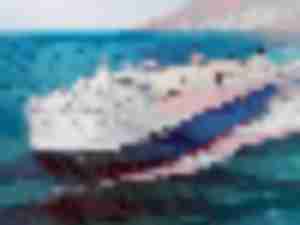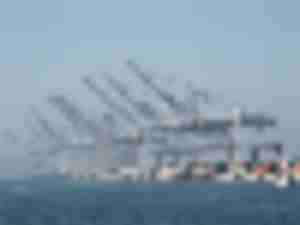Reflagging America
In 1960 America held 16.9 percent of the world’s tonnage with 2,926 cargo vessels and tankers, against a total capacity of 17,317 vessels worldwide. At the turn of the century that number had dropped to 282 vessels registered under the U.S. Flag.
How to get your parcel through UK customs
The moment your parcel is collected from you, whether it be at home or from your local post office, its journey begins.
Harvey can’t keep Texas ports down
While estimates of total economic losses related to Hurricane Harvey are climbing to nearly $200 billion, major Texas seaports have shown their resiliency, sustaining minimal damage to port infrastructure and with most operations having resumed by a week and a half after the storm’s initial landfall.
Railroads rebounding from Harvey impacts
Following a Labor Day weekend that had railroad crews continuing to be busy in recovery efforts from Harvey, rail operations have resumed in much of Texas, in some cases on a limited basis, with those in the far eastern part of the Lone Star State looking to be the last to get back online.
A Nightmare Named Harvey
Levies are overflowing and much of Houston’s Transportation infrastructure is at this point inoperative.
Texas ports looking to reopen by next week in Harvey’s wake
In the wake of Hurricane Harvey, key Texas ports have sights on reopening by early next week [the week of Monday, Sept. 4].
Will cyber hacking continue to plague transportation?
Maersk's recent attack left a black mark on the reliability of global documentation. Working through the backlog of issues, the mega carrier admitted this attack took its toll not only on container operations but on customer confidence. If a transport giant like A.P. Moller could be hit with the Petya virus, what are the chances that your data can remain secure?
Port of Oakland On Track For 2% Growth In 2017
In an interview, Zampa said more 14,000 teu vessels are coming to Oakland with the result that there are less vessel calls but more productivity as the Port handles more containers.
Clearing the Air, Ports Step up to Green Initiatives
The Ports of L.A. and Long Beach rolled out their 2017 “Clean Air Action Plan” (CAAP) this July aggressively stepping up air quality standards for the region.
Port of LA’s Seroka Projects a 9% Increase in 2017
Port of Los Angeles Executive Director Gene Seroka told AJOT he expects a record number of containers to be handled by the Port in 2017: “We expect 2017 to be a strong year and we are looking at a 9% increase over Calendar Year 2016.”
© Copyright 1999–2025 American Journal of Transportation. All Rights Reserved











